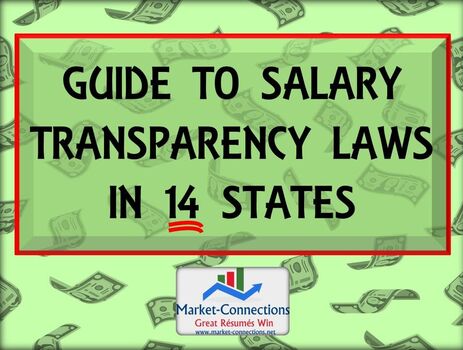Three Free Networking Cover Letter SamplesEvery job seeker has a unique story.... You might be searching for job search ideas.
This post will offer you a cover letter teamplate free of charge to help you with either of the three situations above. Sample Networking Cover Letter After a LayoffDear (Contact Name): I am reaching out to you to ask for your help. As you know, my position was eliminated when Chandler-Roth Department Stores was acquired last month. I am looking to stay in the retail industry and, ideally, remain in the Minneapolis area. My “perfect” job would be another associate manager position — one focused on operations or merchandising (or a combination of both) — in Minnesota or Wisconsin. I would appreciate any advice, contacts, or industry insights you can share with me. I’ve attached my résumé — please feel free to pass it along to anyone you think may be interested in it. If you know of a company that is looking to grow its retail management staff — or fill any open position — please let me know. I’d also appreciate any recommendations of retail recruiters, or recruiters who work on placing management candidates in the Minneapolis area. (I’d prefer to stay in the retail industry, but would potentially consider a management opportunity in a new industry.) Highlights of my qualifications include:
I’m lucky enough to count you as a (friend, colleague, client, co-worker) and I want to thank you (in advance) for any help you can give me. Thanks. Your name P.S. — If you’re on LinkedIn, let’s connect on there. You can find my profile at www.linkedin.com/in/mandyfard Sample Networking Cover Letter for a Relocating JobseekerDear (Contact Name): I recently relocated from California to Ohio. Consequently, I am looking for my next challenge! My focus is a management role drawing on more than 15 years of experience in manufacturing and production. I have enclosed my résumé, which outlines my qualifications. I am asking my network — including you! — to help me identify possible employers that would value someone with my experience and skills. My work history emphasizes supervising production teams (up to 30 employees per shift), keeping manufacturing lines operating at peak capacity with a minimum of downtime, ensuring quality and regulatory compliance, and managing special projects. If you know of someone I should contact to explore an opportunity, I’d appreciate the referral. You can reach me at (phone number) or email me at (email address). Sincerely, Your name Sample Cover Letter for Networking and Updating Contacts About a Job SearchDear (Contact Name): Happy Spring! I wanted to drop you a note to give you an update on how things are going in my job search. Since leaving ABC Company in January, I completed two short-term contract projects, most recently with XYZ Company. I’ve applied for several full-time accounting positions, but have been finding things to be a bit slow. So now I’m turning to my friends-and-family network for your help! I’ve enclosed an updated copy of my résumé in the hopes that you might be able to help me identify and/or make contact with a company or organization that might need someone with my skills and experience. While I’m most interested in a full-time position, I’m also open to a contract opportunity — particularly one that might lead to a full-time position. If you know someone who might be interested in what I can do for them, would you mind passing along my résumé? And give me a call if you have any ideas for me, or if you want to catch up on things. You can reach me at home (phone) or on my cell (phone). I appreciate your help! Best regards, Your name About the AuthorMandy Fard is a Certified Professional Resume Writer (CPRW, CMRW) and Recruiter with decades of experience in assisting job seekers, working directly with employers in multiple industries, and writing proven-effective resumes. Imposter Syndrome Signs and Solutions
Do you suffer from a suspicion you might be a big fraud and everyone’s going to find out? It’s natural to sometimes feel inadequate but you could be suffering from a much more serious ailment known as imposter syndrome. Start with taking an imposter syndrome test.
What Is Imposter Syndrome?
Imposter syndrome is the internal belief that you're not as competent as others think you are. It manifests itself when people give you praise or positive feedback. You might feel undeserving, even though all the evidence suggests that you're highly skilled. At its worst, you may feel like a fraud.
The concept was first coined in the 1970s by psychologists to describe an experience often felt by athletes and business executives. They discovered that even the most recognized individuals often failed to understand their worth, which could cause performance problems. Imposter syndrome can cause a great deal of damage to your work, career, and personal life, so it's important to recognize the signs early and take action to stop it.
10 Solutions to Overcoming Imposter Syndrome
There are five different imposter syndrome types. Know the Signs. You’ve learned the signs here, so you can put this to use right now and learn how to overcome imposter syndrome. Pay attention to your words and actions and interrogate the feelings that arise. Where are they coming from and why?
Want to learn more about how you can fight imposter syndrome? Head over here:
...
About the AuthorMandy Fard is a Certified Professional Resume Writer (CPRW, CMRW) and Recruiter with decades of experience in assisting job seekers, working directly with employers in multiple industries, and writing proven-effective resumes. How to Follow Your Own Vision of Career SuccessHaving a rewarding career depends upon whether or not you know how to follow your own vision of career success. Otherwise, you’re likely to spend your days trying to live up to the expectations of others or mindlessly drifting from one job to the next. Of course, success itself means different things to different people. For some, it’s a matter of earning more money and climbing the corporate ladder. For others, it may mean to learn how to step down the corporate ladder. In the end, it’s more about stretching their skills and contributing to society. Make your work life more satisfying and build accomplishments that you can be proud of. Use this checklist to plan your future and put your plans into action. Planning for Career Success
Implementing Your Career Plan
About the AuthorMandy Fard is a Certified Professional Resume Writer (CPRW, CMRW) and Recruiter with decades of experience in assisting job seekers, working directly with employers in multiple industries, and writing proven-effective resumes. Searching for an Accounting JobAs an accounting graduate, you have broader choices and specific paths to follow with your career. Accounting requires a wide variety of skills when it comes to business and that is why every company has an employee who is an accounting graduate. The good news is you can apply to any kind of firm. Areas may include:
It is best to apply for a job that matches your personal interests and expertise. Some careers have been proven by most accounting graduates to bring them to the top of the success ladder and you may want to consider entering these fields. If you are an accounting graduate who excels in Public Accounting, the entry-level positions that best fit this skill are:
Once you have acquired the required level of experience in any of the above positions, you may want to consider applying for the higher levels such as:
After a few years of excelling in the above positions, you may consider the following roles:
Having an edge in corporate accounting, and a few years of experience will qualify you to become a staff member in:
Moving up to a higher level after a few years, you will be eligible for:
A few years thereafter, you may want to consider aiming for higher positions such as:
With expertise in Financial Management, you may consider:
Higher positions will include
Once you have gained enough experience in the above roles, you may aim for:
These career options are traditional paths that were found to fit accounting graduates. However, it does not mean that they are the only way to moving on up. It is still recommended that you gain enough work experience and acquire knowledge in different aspects of education and continue to improve your competencies to be a step ahead of other job seekers. About the AuthorMandy Fard is a Certified Professional Resume Writer (CPRW, CMRW) and Recruiter with decades of experience in assisting job seekers, working directly with employers in multiple industries, and writing proven-effective resumes. Guide to Salary Transparency Laws in 14 StatesClarity is coming for jobseekers in some states as new laws go into effect requiring certain employers to provide salary ranges to candidates in the job posting or during the interview or salary negotiation process. Pay transparency can take many forms, from including salary ranges on job postings, providing pay and benefits information for positions within the company (including information about why and how pay decisions are made), to facilitating open discussions among co-workers about their salaries. For many employees, open discussion of salary is already protected by law. Under the National Labor Relations Act, covered employees have the right to communicate with other employees at their workplace about their wages. However, some companies have specific policies that prohibit employees from discussing pay during working hours or while using company devices or company communication platforms (i.e., social media). And some employees find talking about pay and benefits uncomfortable. But information can be powerful, especially salary information. Building upon salary research from third-party sites like Salary.com, Glassdoor.com, and similar sites (including industry-specific websites), some jobseekers will now have access to company-provided data about pay ranges. Jobseekers have traditionally been advised to request a salary range from a prospective employer, but now this information is required by law to be given to them in some jurisdictions. One of the most significant outcomes from the legislation is the potential to standardize compensation, especially for new hires versus longtime employees. In many states and jurisdictions, pay transparency initiatives are linked to larger “pay equity” issues, including gender equity for salaries and wages. In addition to reducing gender pay inequity, a survey from Indeed.com found that a full 75 percent of jobseekers say they are more likely to apply for a job if the posting includes a salary range. However, salary is just one component of total compensation. Jobseekers are still advised to consider benefits and non-salary perks of employment when evaluating a job offer. In addition, jobseekers should consider applicable local laws (city and state) before disclosing salary history to a prospective employer. In several areas, employers are prohibited from asking about previous compensation; however, if it is voluntarily disclosed by an applicant, the information can be used to determine a starting salary or wage. In addition to the laws listed, salary transparency laws have been proposed in Alaska, Massachusetts, Michigan, South Carolina, and Vermont. Pay transparency initiatives — including gender-specific pay equity laws, wage disclosure requirements, bans on requesting salary history, etc. can be found on the Pay Equity Map (https://www.fisherphillips.com/pay-equity-map/index.html) SPECIFIC REGULATIONSNumerous states have passed laws affecting employers’ requirements to provide wage and salary ranges, disclosure of applicant’s salary history, and/or pay equity among genders. In addition, certain cities have specific laws related to salary transparency and/or pay equity. Here is a summary of the relevant legislation (as of October 2022): CALIFORNIA (Labor Code Section 432.3, Senate Bill 1162) California was the first state in the U.S. to legally require employers to provide the pay range for a job, if the applicant asked for it after the first interview. Effective Jan. 1, 2018, Labor Code section 432.3 was enacted, prohibiting employers (with limited exceptions) from requesting salary information from applicants and requiring employers to supply pay scales upon request from an applicant. With Senate Bill 1162, effective Jan. 1, 2023, employers with 15 or more workers must include the pay scale for a position in the job posting (including third-party job postings). Companies must provide the pay scale for a position to anyone applying for employment. Employers, upon request from an employee, must also provide the pay scale for the employee’s current position. Employers are also required to maintain records of job titles and wage rate history for employees for the duration of their employment plus three years. Employers are prohibited from seeking salary history information (including compensation and benefits) or using the applicant’s salary history information to determine whether to offer employment or what salary to offer an applicant. However, candidates can voluntarily provide salary history information (and, when disclosed in this manner, the information can be considered or relied upon in determining the salary offered the applicant). Penalties for violations range from $100 to $10,000 per violation. In addition, individuals can pursue civil actions under the law’s provisions. San Diego, CA (Article 2, Division 48) San Diego’s “Equal Pay Ordinance,” effective Jan. 1, 2018, requires employers who contract with the City of San Diego to pay employees equal wage rates for equal or substantially similar work, regardless of an employee’s gender, race, or ethnicity. San Francisco, CA (Article 33J: Parity in Pay) San Francisco’s “Parity in Pay Ordinance,” effective July 1, 2018, prohibits both private and public employers from asking job applicants to disclose salary history. However, if the applicant voluntarily discloses the information (without prompting), employers may consider the information in determining starting pay for the applicant. COLORADO – “Equal Pay for Equal Work Act” (SB19-085) Enacted in 2019, the “Equal Pay for Equal Work Act” prohibits employers from seeking the wage rate history of a prospective employee or requiring disclosure of wage rate as a condition of employment. It also prohibits companies from relying on a prior wage rate to determine a wage rate to offer an applicant. Employees cannot be discharged, disciplined, discriminated against, or otherwise interfered with for inquiring about, disclosing, or discussing the employee’s wages. In addition, employers are required to announce to all employees “employment advancement opportunities and job openings and the pay range for the openings.” Fines for violations range from $500 to $10,000 per violation. CONNECTICUT – “An Act Concerning the Disclosure of Salary Range for a Vacant Position” (House Bill 6380, Public Act 21-30) Effective Oct. 1, 2021, employers located in the state who have at least one employee (whether or not employees physically work in the state) are required to disclose salary ranges for vacant positions to current employees and applicants, upon request or at the time the applicant is made an offer of compensation (whichever is earlier). Current employees must be provided the wage range for their current role upon hiring, a change in the employee’s position with the employer, or upon first request by the employee. The law does not require employers to disclose compensation for any specific employee or for a position the applicant is not applying for. The salary range can be based on a pay scale, any previously determined range of wages for the position, the actual range of wages for current employees in comparable positions, or the amount budgeted by the employer for the position. The law also prohibits employers from inquiring about an applicant’s salary history. The law prohibits employers from inquiring (or using a third party to inquire) about a prospective employee’s wage and salary history (unless the applicant has voluntarily disclosed that information). DELAWARE (House Bill 1) Effective December 2017, Delaware prohibits employers from asking job applicants about their salary history and from inquiring about this data from an applicant’s current or former employer. Employers are not allowed to engage in salary-based screening of job applicants, where prior compensation must meet certain minimum or maximum criteria. Employers are allowed to confirm salary history (“for the sole purpose of confirming the applicant’s compensation history”) after an employment offer has been made and accepted and compensation terms have been agreed to. Violators are subject to civil penalties of “not less than $1,000 nor more than $5,000 for the first offense and not less than $5,000 nor more than $10,000 for each subsequent violation.” MARYLAND – “The Equal Pay for Equal Work Law” (House Bill 123) As of Oct. 1, 2020, HB123 requires employers provide a wage range for a position upon request of the applicant. It also prohibits employers from requesting or requiring applicants to provide salary history “by any means” (orally, in writing, and/or from a third-party, including the current or former employer of the applicant). However, if an applicant offers salary history to support the request for a higher salary, the employer may obtain salary information to justify the higher wage request. Applicants may voluntarily share salary history; however, employers may not use that information to determine a salary “if doing so will create an unlawful pay differential based on sex or gender identity.” Complaints can be filed with the Maryland Labor Commission of the Division of Labor and Industry and fines of $300 or $600 “or more” can be assessed. MASSACHUSETTS – “An Act to Establish Pay Equity, an update to the Massachusetts Equal Pay Act (MEPA)” (Acts of 2016, Chapter 177) In 1945, Massachusetts was the first state in the country to pass an equal pay law. In 2018, the state became the first to prohibit salary history questions before extending an offer of employment. The Massachusetts Equal Pay Act became effective July 1, 2018. Employers may not seek the salary or wage history of any prospective employee before making an offer that includes compensation, and may not require that a prospective employee’s wage or salary history meet certain criteria. The law covers employees who work in Massachusetts as well as those who telecommute to a Massachusetts office. Applicants can share their salary history with a prospective employer, but are not required to do so. Employers cannot ask a question about salary history on employment applications. However, employers may ask about “salary expectations.” Employees have three years from the date of an alleged violation to bring an action in court. NEVADA (Senate Bill 293) Effective Oct. 1, 2021, any public or private employer in Nevada must disclose a wage or salary range to applicants after an initial interview. Current employees applying for a promotion or transfer (or who complete an interview for a promotion or transfer, have been offered a promotion or transfer, or request information to consider a promotion or transfer) must be provided a wage or salary range. In addition, employers are prohibited from inquiring about an applicant’s salary history, or discriminating against an applicant who refuses to provide salary history. Both public and private employers are allowed to ask candidates for their “salary expectations” for the position, and if this information is volunteered, it can be used to make salary offers. Administrative penalties of up to $5,000 can be instituted by the Nevada Labor Commissioner for violations. In addition, civil actions can be pursued under certain circumstances. NEW JERSEY (New Jersey Statute Section 34:6B-20) Effective Jan. 1, 2020, employers in New Jersey are prohibited from screening job applicants on the basis of the applicant’s salary history (including, but not limited to, prior wages, salaries, or benefits). Employers may consider salary history when determining compensation only if the applicant voluntarily provided the information (without employer prompting or coercion). In addition, an applicant’s refusal to volunteer compensation information cannot be considered when deciding whether to make an offer of employment. An employer may request that an applicant provide the employer with a written authorization to confirm salary history (including, but not limited to, the applicant’s compensation and benefits) after an offer of employment (that includes an explanation of the overall compensation package) has been made to the applicant. Employers who share salary information with other potential employers without the express consent of the applicant can be subject to civil penalties of $1,000 for a first violation, $5,000 for a second violation, and $10,000 for each subsequent violation. Jersey City, NJ (Ordinance No. 22-045) Effective (as amended) June 15, 2022, covered employers, employment agencies, and agents of covered employers (those with five or more employees within Jersey City, including counting independent contractors towards the employee threshold) must provide a minimum and maximum salary range and benefits in every job posting or advertisement, whether the job posting or notice is in print or digital form. In addition, it is unlawful for employers to screen a job applicant based on the applicant’s salary history or require that the applicant’s salary history satisfy any minimum or maximum criteria. Violations are subject to fines of up to $2,000. NEW YORK STATE (S9427) – Not Yet Signed Into Law Lawmakers in New York State passed a bill in June 2022 requiring private-sector employers to disclose the compensation or range of compensation in any advertisement for a job, promotion, or transfer opportunity. The governor (as of September 2022) has not yet signed the bill into law, and it would go into effect 270 days after signing. Once enacted, employers must provide a job description for the role, if one exists. Most important is that the statute states that it applies to any jobs that can or will be performed (at least in part) in the state — meaning that it can potentially be applied to remote job positions. Employers who fail to comply with the statute can be fined up to $3,000. New York, NY – “New York City Pay Transparency Law” (Local Law No. 59, Int. 0134-A) Starting Nov. 1, 2022, companies that perform work in New York City must include salary ranges (“minimum and maximum salary information”) in job postings. Employers must provide “a good faith salary range for every job, promotion, and transfer opportunity advertised,” according to the City’s Commission on Human Rights. Temporary help firms advertising jobs for temporary employment are exempted from the requirement. Companies face fines of up to $250,000 for noncompliance after a first offense (the fine for a first offense is zero, and employers have 30 days to correct the deficiency). Only current employees can sue the employer for posting a job, promotion, or transfer without posting a minimum and maximum hourly wage or annual salary. Ithaca, NY (Ithaca City Code § 215-3(F)) Effective Sept. 1, 2022, employers with four or more employees are required to include a salary range (minimum and maximum hourly or salary compensation) for job advertisements (as well as postings for promotions or transfers). The requirement does not apply for job advertisements for temporary employment at a temporary help firm. Westchester County, NY (Westchester County Local Law No. 119) Starting Nov. 6, 2022, employers with at least four employees are prohibited from advertising a position (or promotion or transfer) without including a salary range. The law applies to positions that are performed in whole or in part in Westchester County (in person or remotely). Violations are subject to penalties of up to $250,000. OHIO Cincinnati, OH – “Prohibited Salary History Inquiry and Use” (Ordinance 83-2019) Effective March 2020, employers with 15 or more employees in the city of Cincinnati are barred from inquiring about or relying on job applicants’ salary histories. Employers cannot inquire about the salary history of an applicant, screen applicants based on current or previous salary history, or use the salary history of an applicant to decide whether to extend a job offer or in determining salary and other compensation. Applicants cannot be retaliated against for not disclosing salary history. Employers are allowed to ask applicants about their salary expectations. In addition, employers must provide a pay scale for the position, upon request, after the employer extends a conditional offer of employment. Toledo, OH – “Pay Equity Act to Prohibit the Inquiry and Use of Salary History in Hiring Practices in the City of Toledo” (Ordinance 173-19) Effective June 2020, employers with 15 or more employees must provide, upon request, an applicable pay scale to job applicants who have received conditional offers of employment. Employers are prohibited from inquiring about or using an applicant’s salary history in deciding whether to extend a job offer or in determining salary or other compensation. Employers cannot refuse to hire an applicant or retaliate against an applicant for not disclosing salary history. The law does not apply to current employees seeking internal positions. Civil lawsuits may be filed, if applicable, within two years of a violation. OREGON – “The Oregon Equal Pay Act of 2017” (House Bill 2005 [2017]) The act was signed into law in June 2017. Employers with one or more employees performing work in the state of Oregon are subject to the law. Effective October 2017, employers were no longer allowed to ask candidates about their salary history. Employers cannot ask for a worker’s salary or pay history before they make an offer of employment, although they can ask an applicant’s “preferred salary.” In addition, employers cannot screen job applicants based on current or past salary or pay history. Employers also cannot determine compensation for a job based on the current or past compensation of an applicant. In January 2019, additional provisions came into place affecting pay disparities, requiring employers to pay every worker “equal pay for equal work regardless of gender, race, age, or other protected characteristics.” Also, employees asked about their salary history or alleging pay equity discrimination are allowed to pursue a private right of action. And, employers are prohibited from determining compensation based on a candidate’s salary history, even if a candidate voluntarily revealed their salary history. Effective in October 2022, employers are no longer allowed to omit hiring and retention bonuses from consideration in an equal pay analysis. PENNSYLVANIA Philadelphia, PA – “The Philadelphia Wage Equity Ordinance” (Philadelphia Commission on Human Relations, Regulation No. 7) This law, effective Sept. 1, 2020, makes it illegal for employers with one or more employees doing business in the city of Philadelphia, employment agencies, or their agents to ask applicants for current or prior salary history during the application or hiring process. It applies for positions located in Philadelphia (regardless of where the employer is headquartered). In addition, employers cannot retaliate against an applicant for refusing to provide salary history. The law does not prohibit employers from asking applicants about their “salary expectations.” Applicants reporting violations of the Wage Equity Ordinance to the Philadelphia Commission on Human relations may be awarded compensatory damages, punitive damages, reasonable attorneys’ fees, costs, or “other appropriate relief” if the complaint is substantiated. RHODE ISLAND – “The Rhode Island Equal Pay Law” (2021-S 0270A, 2021 H 5261A) Effective Jan. 1, 2023, employers with one or more employees in the state are required to provide applicants with a salary range upon request. If a salary range is not requested upon application, employers “should provide the wage range for the position prior to discussing compensation.” If an employer offers an applicant a position, the employer may seek to obtain information about the applicant’s wage history to support a wage higher than the wage being offered (if the applicant voluntarily provided their wage history). For current employees, salary ranges can include applicable pay scales and what other employees in similar positions have been paid. Current employees can request the wage range for their position at any time during employment. Violations of the law are subject to fines of up to $1,000 per violation (first offense) to $5,000 (two or more violations in a seven-year period). WASHINGTON – “The Washington Equal Pay and Opportunities Act” (Chapter 49.58 RCW) Starting Jan. 1, 2023, employers with 15 or more employees must provide a wage scale or salary range for each job posting (not just a minimum salary or wage). The job posting must include a description of all benefits and compensation offered (not just wage or salary). For internal roles, employers are required to provide a salary range or wage scale upon request (and all positions must have a wage scale or salary range). The law also prohibits employers from limiting an employee’s ability to discuss wages and prevents nondisclosure of wages as a condition of employment. Fines for violations range from up to $500 for a first offense to $1,000 (“or 10 percent of the damages, whichever is greater”) for repeated offenses. In addition, employees may bring a civil action against an employer for actual and/or statutory damages as well as attorneys’ fees. Note: This information is provided for informational purposes and does not contain or convey legal advice. The information herein should not be used or relied upon in regard to any particular facts or circumstances without first consulting a lawyer. About the AuthorMandy Fard is a Certified Professional Resume Writer (CPRW, CMRW) and Recruiter with decades of experience in assisting job seekers, working directly with employers in multiple industries, and writing proven-effective resumes. |
Categories
All
powered by Surfing Waves
AuthorMandy Fard is a Certified Professional Resume Writer (CPRW, CMRW) and Recruiter with decades of experience in assisting job seekers, working directly with employers in multiple industries, and writing proven-effective resumes. Archives
July 2024
|
-
Greater Los Angeles
and Kern County
-
[email protected]
.








 RSS Feed
RSS Feed



